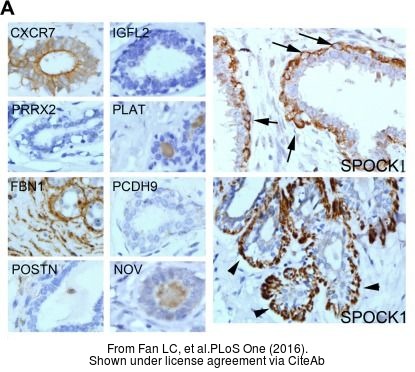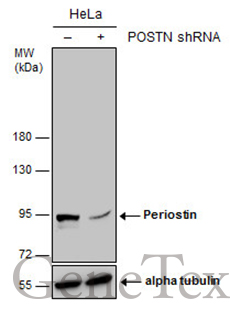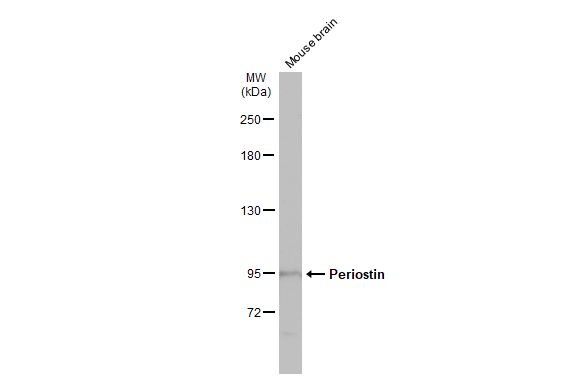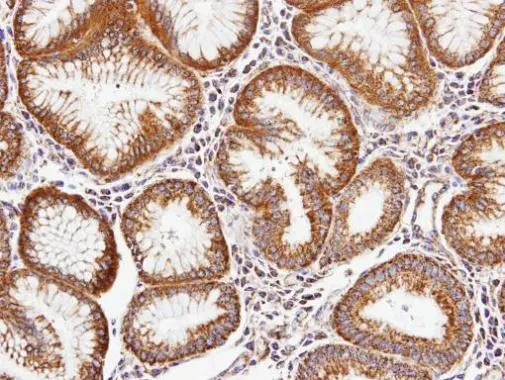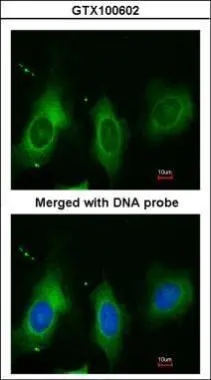Overview
- SupplierGeneTex
- Product NamePeriostin antibody
- Delivery Days Customer9
- CertificationResearch Use Only
- Concentration0.29 mg/ml
- IsotypeIgG
- Scientific DescriptionBinds to heparin. Induces cell attachment and spreading and plays a role in cell adhesion. May play a role in extracellular matrix mineralization.
- Storage Instruction2°C to 8°C,-20°C
- UNSPSC12352203
References
- Endoplasmic Reticulum Protein TXNDC5 Augments Myocardial Fibrosis by Facilitating Extracellular Matrix Protein Folding and Redox-Sensitive Cardiac Fibroblast Activation. Shih YC et al., 2018 Apr 13, Circ ResRead more
- Endoplasmic reticulum protein TXNDC5 promotes renal fibrosis by enforcing TGF-beta signaling in kidney fibroblasts. Chen YT et al., 2021 Mar 1, J Clin InvestRead more
- Fibroblast-enriched endoplasmic reticulum protein TXNDC5 promotes pulmonary fibrosis by augmenting TGFbeta signaling through TGFBR1 stabilization. Lee TH et al., 2020 Aug 26, Nat CommunRead more
- Fibroblast-enriched endoplasmic reticulum protein TXNDC5 promotes pulmonary fibrosis by augmenting TGFbeta signaling through TGFBR1 stabilization. Lee TH et al., 2020 Aug 26, Nat CommunRead more
- Increased Serpina3n release into circulation during glucocorticoid-mediated muscle atrophy. Gueugneau M et al., 2018 Oct, J Cachexia Sarcopenia MuscleRead more
- Periostin blockade overcomes chemoresistance via restricting the expansion of mesenchymal tumor subpopulations in breast cancer. Nakazawa Y et al., 2018 Mar 5, Sci RepRead more
- Pirfenidone suppresses bleomycin-induced pulmonary fibrosis and periostin expression in rats. Song X et al., 2018 Sep, Exp Ther MedRead more
- SPOCK1 Is a Novel Transforming Growth Factor-beta-Induced Myoepithelial Marker That Enhances Invasion and Correlates with Poor Prognosis in Breast Cancer. Fan LC et al., 2016, PLoS OneRead more

